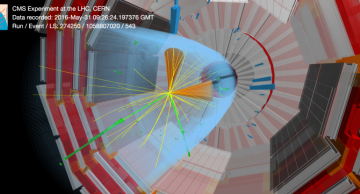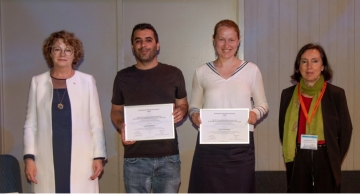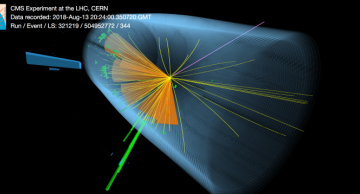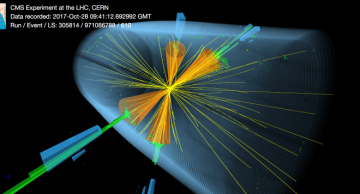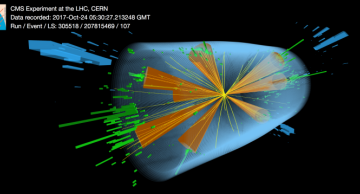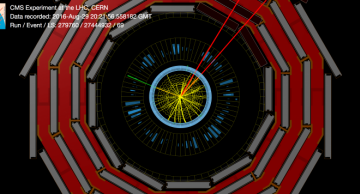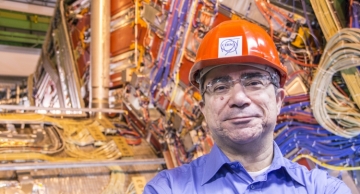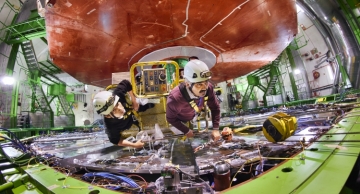The CMS collaboration has carried out for the first time a direct search for a Higgs boson decaying into charm quarks, a vital step in understanding the Higgs particle and the Standard Model.
The discovery of a Higgs boson by both the ATLAS and…
News
CMS members recognised by 2019 Young Experimental Physicist Prize from the European Physical Society
|
lapka |
Collaboration
Each year, The European Physical Society (EPS)* recognizes outstanding work by one or more young physicists (under the age of 35) in the field of Particle Physics and/or Particle Astrophysics with the Young Experimental Physicist Prize.This…
|
fblekman |
Physics
Not many people know that there is a boson-boson collider hiding in the proton-proton collisions of the Large Hadron Collider. The idea is that during rare occasions other particles such as the photon and gauge bosons W and Z are created by the…
|
Anonymous |
Physics
The CMS collaboration is presenting several new results at the 2019 European Society of Physics’s High-Energy Physics conference (EPS-HEP) taking place in Ghent, Belgium. The results cover a diverse assortment of topics and range from precision…
|
fblekman |
Physics
The CMS Collaboration has recently presented an updated search for new invisible particles. The technique capitalizes on the imbalance among the visible particles in a collision that such an object would induce. If dark matter is made of fundamental…
|
fblekman |
Physics
New physics may show up at the LHC in the form of yet unobserved particles which travel inside the detector before decaying, far from the point in space where they were produced. If these particles decay to photons, at CMS we can use the short but…
|
fblekman |
Physics
At the EPS-HEP conference this week the CMS collaboration presents new results of a powerful search that is motivated by a variety of new physics models that predict a signature of a bump in the production of the most frequently produced particles…
|
fblekman |
Physics
The CMS collaboration has recently released new results on how the top quark and Higgs boson interact, and this required a much deeper understanding of the production of top quarks together with bottom quarks.
The two heaviest known elementary…
|
vlimant |
Detector
Managing the amount of data from the Large Hadron Collider (LHC) collisions is a major challenge for CMS physicists. The detector produces more than 500 terabytes of data per second. Even after sophisticated real-time processing and filtering of the…
|
fblekman |
Physics
The study of dark matter is one of the primary research topics at the CMS experiment. The standard model of particle physics describes the behavior of elementary particles with incredible accuracy but provides no explanation or possible particle…
|
lapka |
Engage with CMS
Paraskevas Sphicas, CMS' former co-Deputy Spokesperson of CMS (2014-2016), and CMS physics coordinator during the crucial phase from 2006 to the start of data taking, was elected as Fellow of the prestigious Royal Society of the UK and the…
|
mashah |
Detector
After the LHC was shut down in December 2018 following the successful completion of RUN 2 operation, CMS is undergoing an intensive upgrade and maintenance program during the current two-year break (“Long Shutdown 2” or LS2) in order to ensure an…

